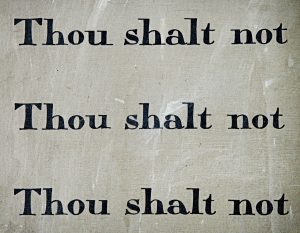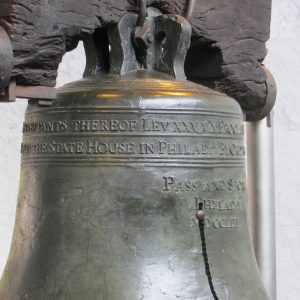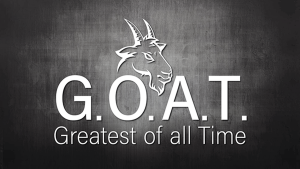Bearing false witness is mentioned many times in the Bible. We must conclude that it is very bad since God placed it as ninth on His top 10 list of mandatory commandments (Exodus 20:16; Deuteronomy 5:10). Being a false witness, or spreading a false report about someone, is associated with being aligned with the wicked (Exodus 23:1). There are plenty of other Biblical references. David calls out in Psalm 27:12 to avoid giving his enemies what they want, false witnesses who will revolt against him. Even Solomon’s Proverbs 14:5 warns against sowing discord among brothers and compares such actions to that of using a violent weapon (Proverbs 25:18). Why would this sin receive so much attention? Lies are effective; they work! In our society today, there has been an explosion of injustice facilitated by bearing false witness against one another. It does not matter who you are or what side you are on; the best liars are becoming the winners. It is also very profitable. Bearing false testimony is also a broad and encompassing sin. It not only includes the command to be truthful in all things, but the prohibition not to lie publicly, as in a court of law by laying at another’s feet any false charge that could injure them, or lie privately by whispering, talebearing, backbiting, slandering, or destroying their character by innuendos, sly insinuations, and evil suggestions.
Is this sin worse than others? There are probably three main reasons for this sin making the top ten list.
- God’s people are commanded to reflect God’s character. God does not and cannot lie! Numbers 23:19 says, “God is not human, that he should lie, not a human being, that he should change his mind. Does he speak and then not act? Does he promise and not fulfill?1NIV New International Version Translations” To lie is to disgrace God’s very name.
- Bearing false witness against another is destructive to the individual who was the victim of the lie. One’s credibility and reputation suffer, and their ability to sustain their family is harmed. Leviticus 19:18 makes it clear that the Israelites were to love their neighbors as themselves. This same command is repeated by both Jesus and Paul (Matthew 22:39; Romans 13:9). Loving our neighbors prohibits lying about them too.
- Bearing false witness is destructive to any society that claims to be for law and order. Both in the days of the Israelites and today, no legal system can function if the witnesses who testify cannot be trusted to tell the truth. Without a trustworthy judicial system based on eyewitness testimony from reliable and truthful witnesses, societies are at risk of a complete breakdown of law and order. Without law and order, chaos ensues, and the innocent always suffer.
Our Bible is quite specific about the nature of the human heart. It is flawed and sinful. We may need it to live and survive, but as a GPS, the human heart guides our morality.
(Jeremiah 17:9) – “The heart is deceitful above all things and beyond cure. Who can understand it?”
Jeremiah is telling us that our emotions are misleading. Whenever we merely “feel” that something is right or wrong, that is not enough. Our hearts are deceitful. What flows out of humanity in terms of emotions is deceptive because they come from a corrupted control center. Look around, and you will see people worshiping their self-image, celebrities, and especially their money. Look at our government! Today, a political career can be a pathway to untold wealth. And what do they do to get that rich? Swear, lie, murder, and use deceit to gain their power and wealth. Where are God’s Laws in all of this? They are cast aside as being archaic and in need of modernization. If we want to fix our world, we first need to fix the human heart. This is an impossible task without God’s help. A nation without God has no moral compass guiding its people.
(Proverbs 29:18-27) – “Where there is no revelation, people cast off restraint; but blessed is the one who heeds wisdom’s instruction. Servants cannot be corrected by mere words; though they understand, they will not respond. Do you see someone who speaks in haste? There is more hope for a fool than for them. A servant pampered from youth will turn out to be insolent. An angry person stirs up conflict, and a hot-tempered person commits many sins. Pride brings a person low, but the lowly in spirit gains honor. The accomplices of thieves are their own enemies; they are put under oath and dare not testify. Fear of man will prove to be a snare, but whoever trusts in the Lord is kept safe. Many seek an audience with a ruler, but it is from the Lord that one gets justice. The righteous detest the dishonest; the wicked detest the upright.”
There are many biblical stories to pick about bearing false witness. When the wicked Queen Jezebel wished to purchase a vineyard for her sulking husband, King Ahab (See Lostpine’s Study: Who Was Ahab), she employed two false witnesses. Naboth, the rightful owner of the vineyard, was seated in an honorable place on a day of fasting, but “Then two scoundrels came and sat opposite him and brought charges against Naboth before the people, saying, ‘Naboth has cursed both God and the king.’ So they took him outside the city and stoned him to death.” (1 Kings 21:13). Isn’t this what we see every day in politics? Is there a fix to the problem of bearing false witness as a common weapon?
(Proverbs 25:18) – “Like a club or a sword or a sharp arrow is one who gives false testimony against a neighbor.”
God is not tolerant of those who give false testimony. He demands only the TRUTH! It is worth reading to see how God handled Ahab and Jezebel. Justice was served in the end. There is a wonderful and simplistic Bible verse that seems to tell us God’s opinion: “There are six things that the Lord hates, seven that are an abomination to Him…a lying tongue…a false witness who breathes out lies…” (Proverbs 6:16–19). The sin of lying that manifests itself as giving false testimony comes from the sinful human heart. It lives there along with murder, adultery, sexual immorality, theft, slander, and evil thoughts (Matthew 15:19). Like all sins, they do not go unpunished.
(Romans 1:18-21) – “The wrath of God is being revealed from heaven against all the godlessness and wickedness of people, who suppress the truth by their wickedness, since what may be known about God is plain to them, because God has made it plain to them. For since the creation of the world God’s invisible qualities—his eternal power and divine nature—have been clearly seen, being understood from what has been made, so that people are without excuse. For although they knew God, they neither glorified him as God nor gave thanks to him, but their thinking became futile and their foolish hearts were darkened.”
Hollywood’s glorification, late-time television’s humor, or the media’s bias in support of those who give false testimony does not go unnoticed by our Creator. His character and His TRUTH teach that honesty, integrity, and truthful speech are essential values for maintaining healthy relationships and just societies. Human nature will always generate excuses. We are great at self-justification, meant to avoid any guilt or sacrifice. Unfortunately, people choose silence rather than admit any guilt or complicity that might damage their ego. Humanity is not the center of the universe, although it works hard to control virtually everything, even the weather. By insisting on “tolerance,” humanity has deceitfully managed to produce an open-minded acceptance of what once would have been called sinful behavior. There are no longer absolutes that exist regarding one’s conduct. Morality has become subjective, defined as “personal choice.” Do you think this is an exaggeration? Look at today’s cooperative media, good-looking celebrities, slick politicians, and liberal courts!
Contemplations
- What do you do personally when you see an injustice in our society?
- Ideas to Explore: Avoid controversy. Stay informed. See how you might help. Adjust who you support. Anything else?
- How do you respond to the war on religion?
- Ideas to Explore: Avoid church. Only go on Sundays. Watch online. Know who you vote for.
- God is being removed from our society. What is your response?
- Ideas to Explore: Are you silent, an activist, or somewhere in between?
- How do you assure yourself that you do not pass on a false fact heard from some other source?
- Ideas to Explore: Avoid spreading facts unless you have personally witnessed the information. Do research that includes lots of sources along with the Internet.
- 1NIV New International Version Translations









